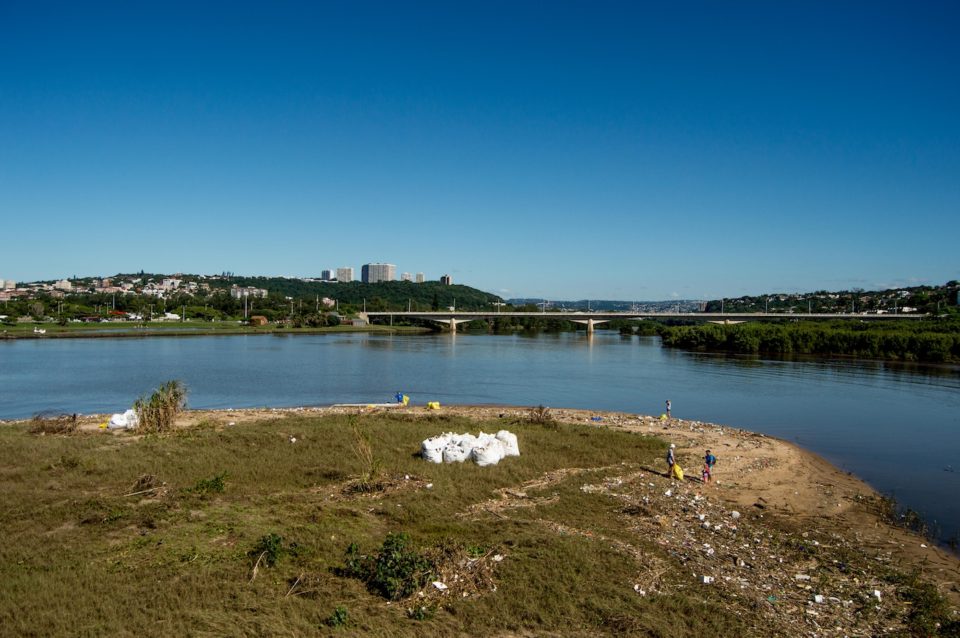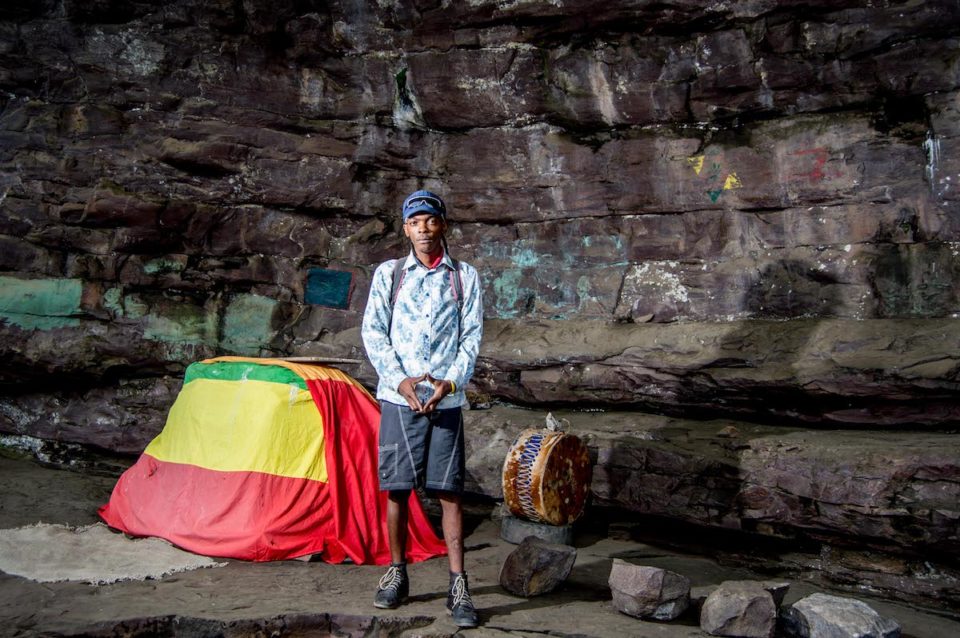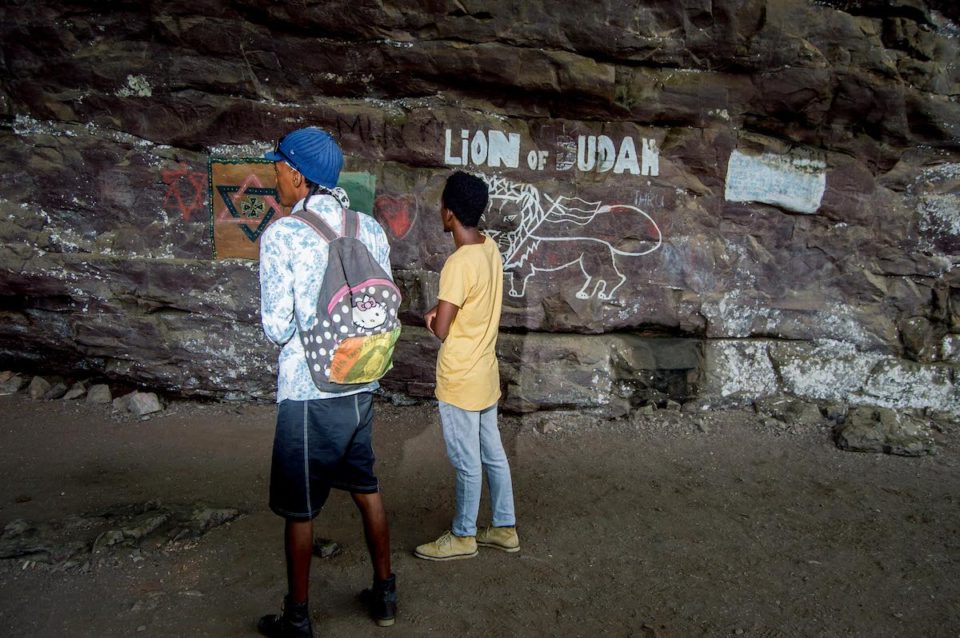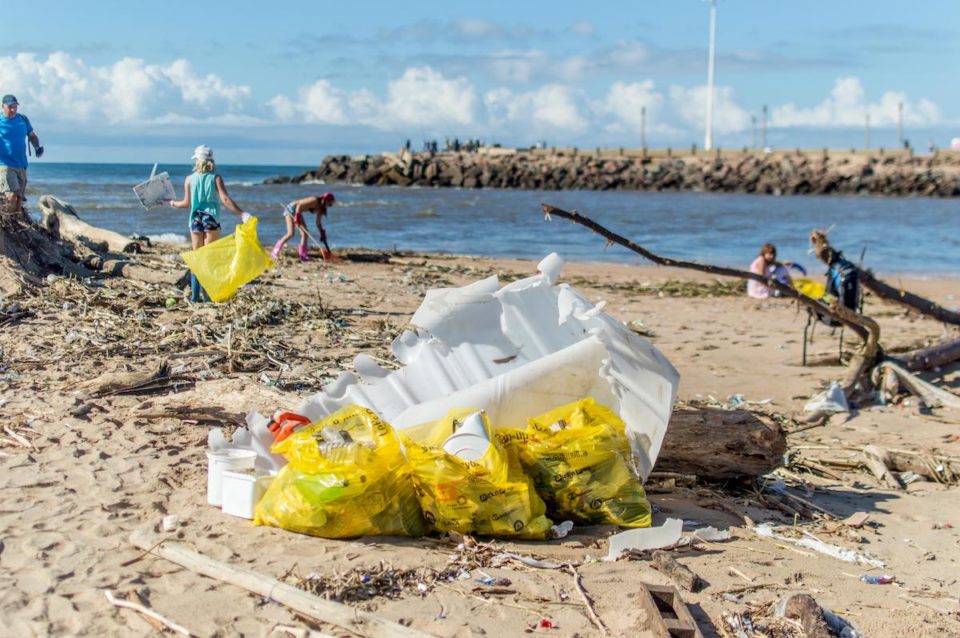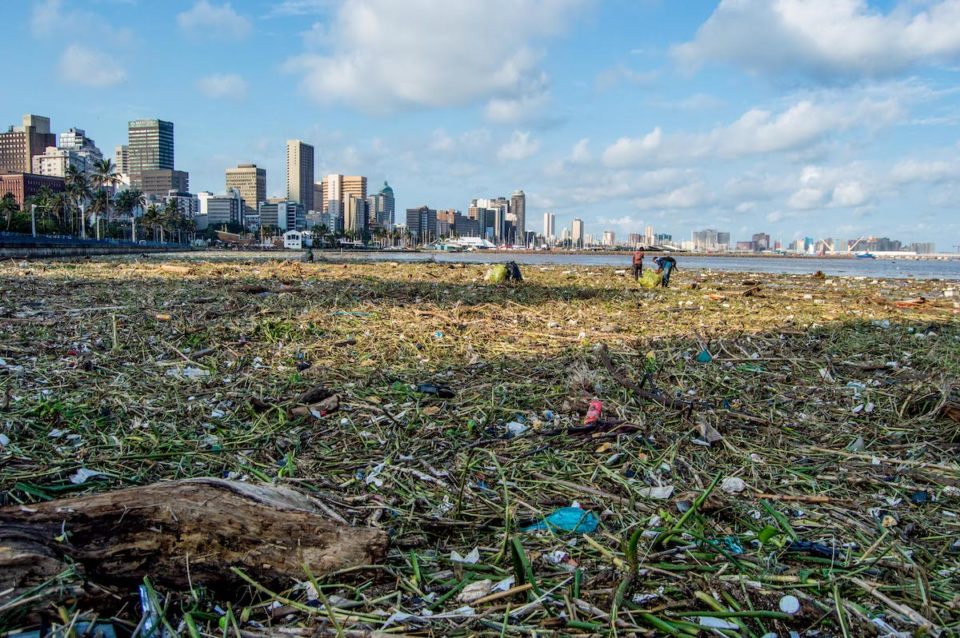Green Corridors has quietly existed since 2010, as a project introduced by Durban municipality. In 2015, they became a private entity and have spearheaded some of the city’s most admirable conservation work. The organisation-turned-NPO’s main concern is the natural environment. Through Eco-tourism, Youth and Development Programmes, and Environmentalism, they are building toward an eco-friendly city. I recently went on an adventure to learn about them and how Yoco helps their mission.
There are ominous clouds above, and the air is sticky with Durban’s notorious humidity. I am meeting Sifiso Mngoma, Green Corridors’ Marketing and Social Media Coordinator, at The Green Hub. Over the next several days Mngoma will be my tour guide, accompanying me to some of KZN’s eco-tourism and conservation locations.
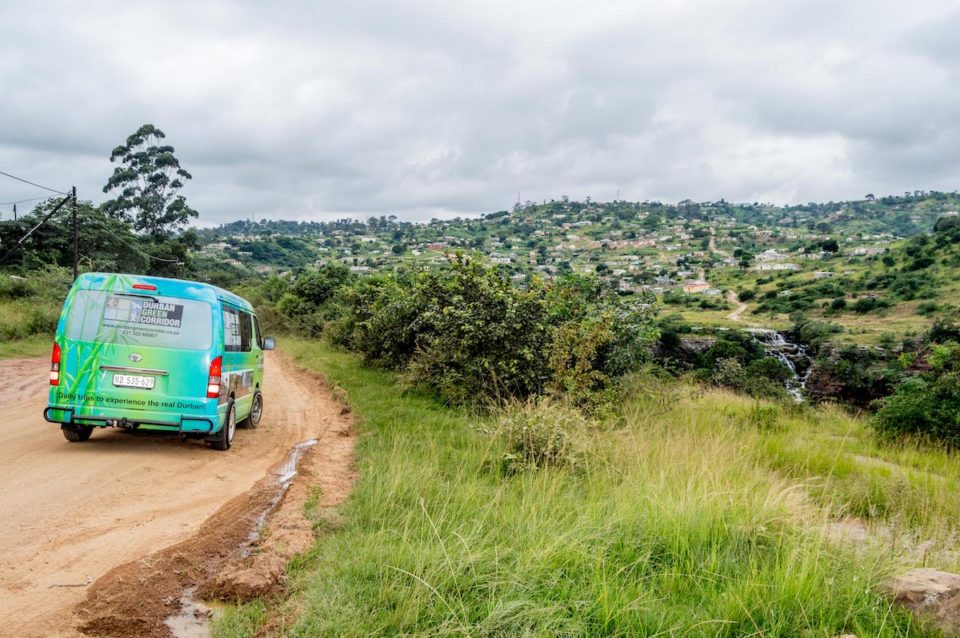
Our first trip is to the Rastafarian Caves in eNanda, 30-minute’s-drive from the CBD. We travel in Green Corridors’s viridescent Quantum minibus. Before we reach our destination, we stop to pick up Bongani Mkhize: a Rasta who visits the caves every Friday for a gathering.
We are greeted by a view of Umzinyathi Falls, before we descend through the forest. Mkhize tells us about Marandi: the Rastafarian elder who had a vision which brought him to the sacred space in the ‘70s.
My lungs are stung by the forest air as Mngoma observes that Rastafarianism’s core value is shared by Green Corridors: “Don’t harm nature,” to put it simply.
Mkhize notices fabric and plastic hanging from a tree, illustrating the need for Green Corridors to encourage the community and its visitors to discard their rubbish appropriately.
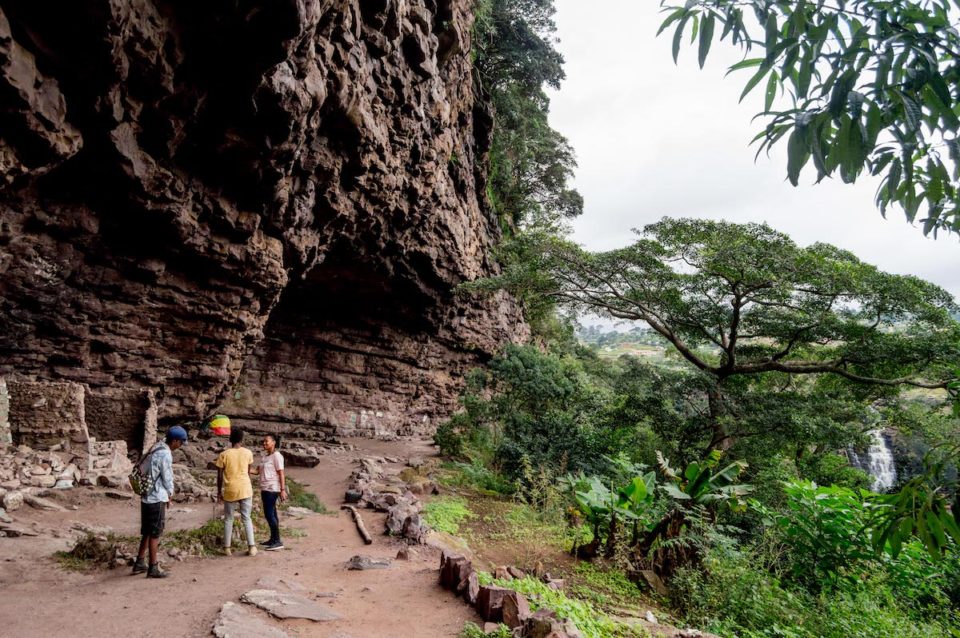
Their mission is not easy, for trying to conscientise people to the environment amidst pressing socio-political issues, makes it that much harder to get community buy-in.
We hike back to the Quantum and drop Mkhize off after he is paid for his services. It is imperative to Mngoma that Green Corridors support those with whom they collaborate: “The Rastafarian Cave community were just using the cave as their home and temple. By taking people to them, there is a certain percentage of the money that goes to the Rastafarian community.”
Green Corridors has built strong relationships with the communities they bring guests, by collaborating with local SMMEs. For example, connecting visitors to Maphumulo Homestay in Valley of 1000 Hills. At this destination, visitors can experience a traditional restaurant whilst surrounded by one of KZN’s more picturesque settings. Guests get to know about the area by staying with people who live there and who have small businesses.
Working relationships such as Maphumulo Homestay, contributes to the rural economy: “The money that was supposed to go to developed restaurants in the city will go to certain families. In one way or the other we are supporting the economy of that rural area,” Mngoma explains.
Green Corridors promotes entrepreneurial initiatives that are connected to eco-tourism by supporting over 50 SMMEs, according to their website.
A storm hits as we are about to call it a day. Debris washes ashore at Blue Lagoon. It is a devastating sight, but not unfamiliar to Green Corridors: “One of the problems we are facing is that litter booms are not strong enough, and litter ends up at the mouth of the river,” he admits. Green Corridors have installed litter booms along the Umgeni River, to try trap plastic before it reaches the ocean. “We have teams that regularly check these litter booms and collect what has been trapped, [and] separate recyclables and non-recyclables,” he informs me. Sadly, the sheer immensity of rubbish is proving formidable.
Through social media, education partners, and word of mouth, Green Corridors is able to mobilise volunteers to assist with clean-ups. These, however, can seem hopeless, with polystyrene, fishing line, and other non-biodegradables littering the dunes and rocks. “One of the things we are working on is to try and persuade the government to ban plastic. I personally feel like we are fighting a losing battle,”says Mngoma. The sentiment resonates with many in the city. In conjunction with Durbanites Against Plastic Pollution, they have tried to petition plastic straws, and change by-laws regarding plastic use and production. “Taking this plastic to landfills is not a permanent solution,” Mngoma believes. With small budgets and social apathy, their mission faces many obstacles.
One way of trying be financially independent and sustainable is through the Yoco card machine. It allows people to donate online to support Green Corridors’ initiatives, as well as using Yoco as a basic card payment facility. “Nobody walks around with cash these days”, explains Mngoma, “Yoco makes it easier and possible to assist all our clients without any limitations.” Whether travelling to far away destinations with guests and volunteers, or engaging with an anti-plastic supporter online, they are able to easily raise funds and transact through Yoco.
The hard-working people of Green Corridors take their jobs seriously. The NPO’s well-rounded approach to green living is apparent. The battles they face are not small, however, the implementation of various programmes has been relatively successful. With more support they can grow their projects and sustain the work they already do. Green Corridors offers insight into a lush and culturally rich province, with eco-activism at its core. They would like to extend their model to places outside of KwaZulu-Natal, but will content themselves to collect rubbish and build bike parks for now.

